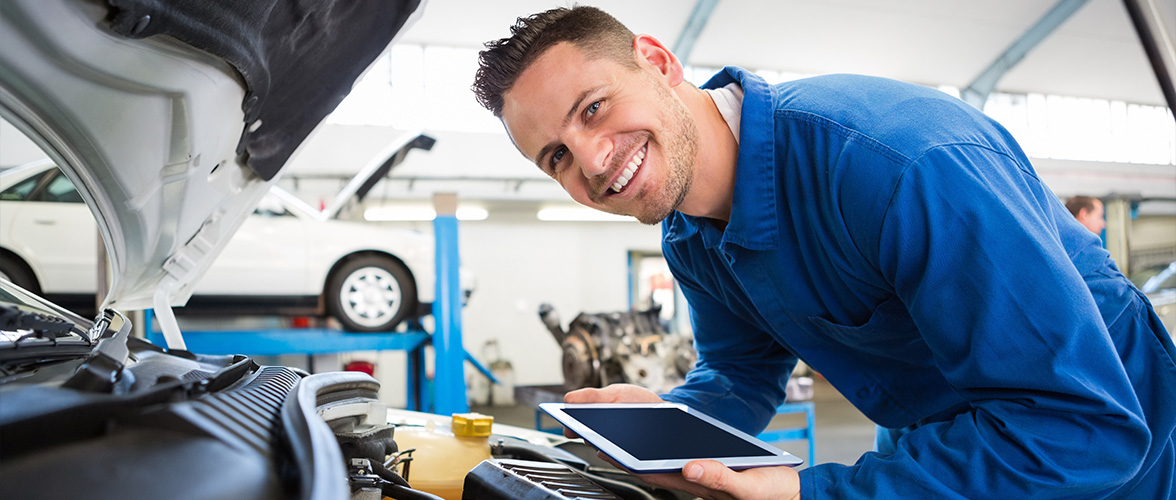All Categories
Featured

Your vehicle's engine is the heart of your car, and maintaining it in top problem is necessary for optimum efficiency and long life. Routine engine tune-ups are a wonderful method to keep your car's health and wellness, boost fuel efficiency, and stay clear of pricey repair work in the future. Whether you're a car enthusiast or someone who simply wishes to keep their car running efficiently, these engine tune-up tips will certainly help you get one of the most out of your automobile.
- Replace Spark Plugs. Trigger plugs play an important duty in beginning your engine and guaranteeing smooth burning. In time, ignition system can become unclean or broken, causing misfires, minimized fuel effectiveness, and rough idling.
Throughout an engine tune-up, examine and replace your stimulate plugs if required. A lot of cars need new stimulate plugs every 30,000 to 100,000 miles, relying on the type. On a regular basis changing stimulate plugs makes sure correct ignition and optimum engine efficiency.
- Check and Tidy the Air Filter. The air filter prevents dirt, dust, and debris from entering your engine. A blocked or dirty air filter limits air flow, causing your engine to function more challenging and burn more fuel.
Inspect your air filter throughout a tune-up and change it if it's dirty. In dusty environments or locations with heavy air pollution, you might require to change the air filter extra regularly. A clean air filter can enhance fuel efficiency and prolong the life of your engine.
- Check and Change Belts and Hose Pipes. Belts and tubes are crucial for numerous engine features, such as powering the generator, water pump, and cooling system. Gradually, these parts can fracture, fray, or break, potentially causing failures.
Throughout a tune-up, check belts and hoses for signs of wear and replace them if required. Replacing these parts proactively can conserve you from costly repair services and protect against unexpected failings.
- Tidy the Gas System. Your fuel system, including the fuel injectors and fuel lines, can collect dirt and carbon deposits with time, reducing engine efficiency. Cleaning up the gas system during a tune-up helps improve performance and gas economy.
You can use a fuel system cleaner or have a specialist mechanic perform a much more complete cleansing. This step is especially important for older vehicles or vehicles that frequently drive in stop-and-go traffic.
- Examine the Battery and Billing System. A healthy and balanced battery is essential for starting your engine and powering electric elements. Throughout a tune-up, evaluate the battery terminals for deterioration and make certain the connections are limited.
Examine the battery's voltage and change it if it shows indicators of weakness. In addition, have the alternator and charging system evaluated to ensure your battery stays billed throughout operation.
- Modification the Engine Oil and Oil Filter. Oil changes are an essential component of engine maintenance. Engine oil lubricates relocating components, decreases friction, and aids regulate engine temperature level. Over time, oil becomes infected and loses its efficiency.
Throughout a tune-up, replace the engine oil and oil filter to keep your engine running smoothly. Follow your car's supplier suggestions for oil type and adjustment periods.
- Check the Cooling System. The air conditioning system avoids your engine from overheating. Over time, coolant can weaken or come to be infected, reducing its effectiveness.
Examine the coolant degree and condition throughout a tune-up, and flush and change it if needed. Inspect the radiator, water pump, and hoses for leakages or damage. A well-kept cooling system helps your engine run at the ideal temperature level and prevents overheating.
- Evaluate the Ignition System. A damaged ignition system can cause beginning problems and reduced engine efficiency. Throughout a tune-up, inspect the ignition coils, supplier cap, and blades (if relevant) Replace any elements that show signs of wear or damage to make sure smooth and reliable engine procedure.
- Pay Attention for Uncommon Noises. During a tune-up, take the possibility to listen for any type of unusual engine sounds, such as knocking, ticking, or hissing. These sounds can show underlying problems, such as shutoff troubles, loose components, or exhaust leakages. Resolving these issues early can protect against more extensive damages.
- Usage Top Quality Components and Fluids. When executing an engine tune-up, constantly use high-grade components and fluids that satisfy your lorry supplier's specifications. Economical or incorrect elements can jeopardize your engine's performance and dependability.
Final Thought: A Well-Tuned Engine is Trick to Long life. Routine engine tune-ups are important for keeping your car's efficiency, efficiency, and integrity. By replacing used elements, cleaning up essential systems, and attending to potential issues, you can keep your engine running smoothly for many years to find. Whether you're doing it yourself or relying on a trusted mechanic, buying tune-ups is a clever way to secure your vehicle and appreciate a more secure, smoother ride.
Latest Posts
Uncover Outstanding Vehicle Maintenance Care offered by Montclare Auto Repair – Expert Care for Your Vehicle
Why Routine Vehicle Maintenance at Montclare Auto Repair Reduces Costs
Explore Exclusive Auto Repair Offers in Chicago at Montclare Auto Repair
More
Latest Posts
Uncover Outstanding Vehicle Maintenance Care offered by Montclare Auto Repair – Expert Care for Your Vehicle
Why Routine Vehicle Maintenance at Montclare Auto Repair Reduces Costs
Explore Exclusive Auto Repair Offers in Chicago at Montclare Auto Repair
